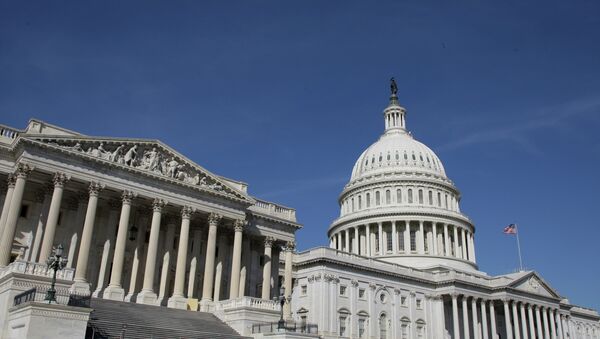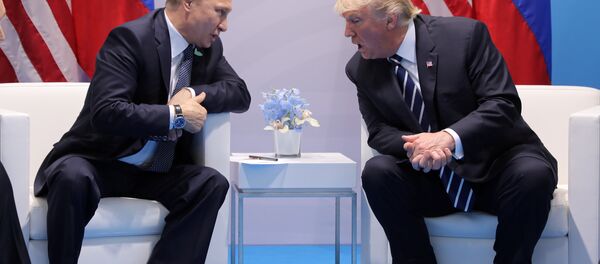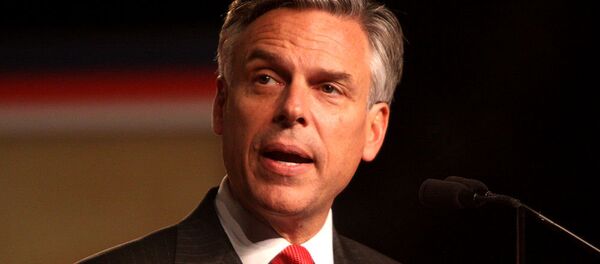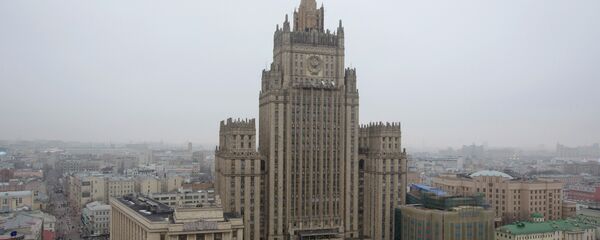Commenting on the persistent allegations of Russia’s meddling in the US presidential election in 2016, Drobnitsky stressed that the issue is extremely politicized.
"It is being inflated with one purpose only, to poison any efforts by his administration to normalize relations with Russia. Of course, in this situation there is no smoking gun evidence, but regardless of this, media pressure will continue," the analyst said in an interview with Radio Sputnik.
Drobnitsky pointed out that the main obstacle for mending US-Russia relations is the fact that the US Congress has an anti-Russian stance.
"In its current form Congress is dominated by anti-Russian, I would even say russophobic sentiments. I can’t say that the majority of congressmen are russophobes. But there is an overall trend. It’s just hip to be anti-Russian, suspicious of Russia. Unfortunately, it is so," the expert said.
Meanwhile, the US House of Representatives recently introduced a new version of the bill which would slap new sanctions on Moscow over its alleged interference in the US election.
The bill was dubbed the Preventing Usurpation Through International Networks (PUTIN) Act.
"Russia is escalating its cyberattacks on our critical infrastructure – including, as recently reported, on our nuclear facilities. The President’s proposal would undermine national security while sending the wrong message to our allies, partners, and adversaries," Congresswoman Jackie Speier said in a statement.
Earlier, Russian Foreign Minister Sergei Lavrov said that during the talks in Hamburg Moscow and Washington agreed on the establishment a joint working group on a range is issues, including fighting terrorism, organized crime and hacking. US President Trump showed support for the idea of a joint cybersecurity unit, the Russian Foreign Ministry said.
Trump later appeared to back away from the idea of cooperating with Russia on cybersecurity, saying in a Twitter post that the fact that he discussed a cybersecurity unit with Putin does not mean he thinks it can happen.
For his part, Trump slammed US media for coverage of his talks with the Russian president.
"Fake News story of secret dinner with Putin is "sick." All G 20 leaders, and spouses, were invited by the Chancellor of Germany. Press knew!…" Trump wrote on Twitter.
Fake News story of secret dinner with Putin is "sick." All G 20 leaders, and spouses, were invited by the Chancellor of Germany. Press knew!
— Donald J. Trump (@realDonaldTrump) 19 июля 2017 г.
"The Fake News is becoming more and more dishonest! Even a dinner arranged for top 20 leaders in Germany is made to look sinister!" he added.
Since Trump assumed the office, US media has accused his team of having ties to the Kremlin. The US president has refuted these allegations and labeled the media involved in these speculations as "fake news."





